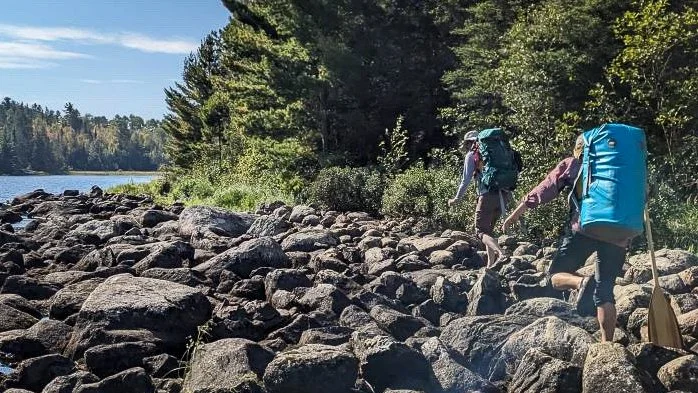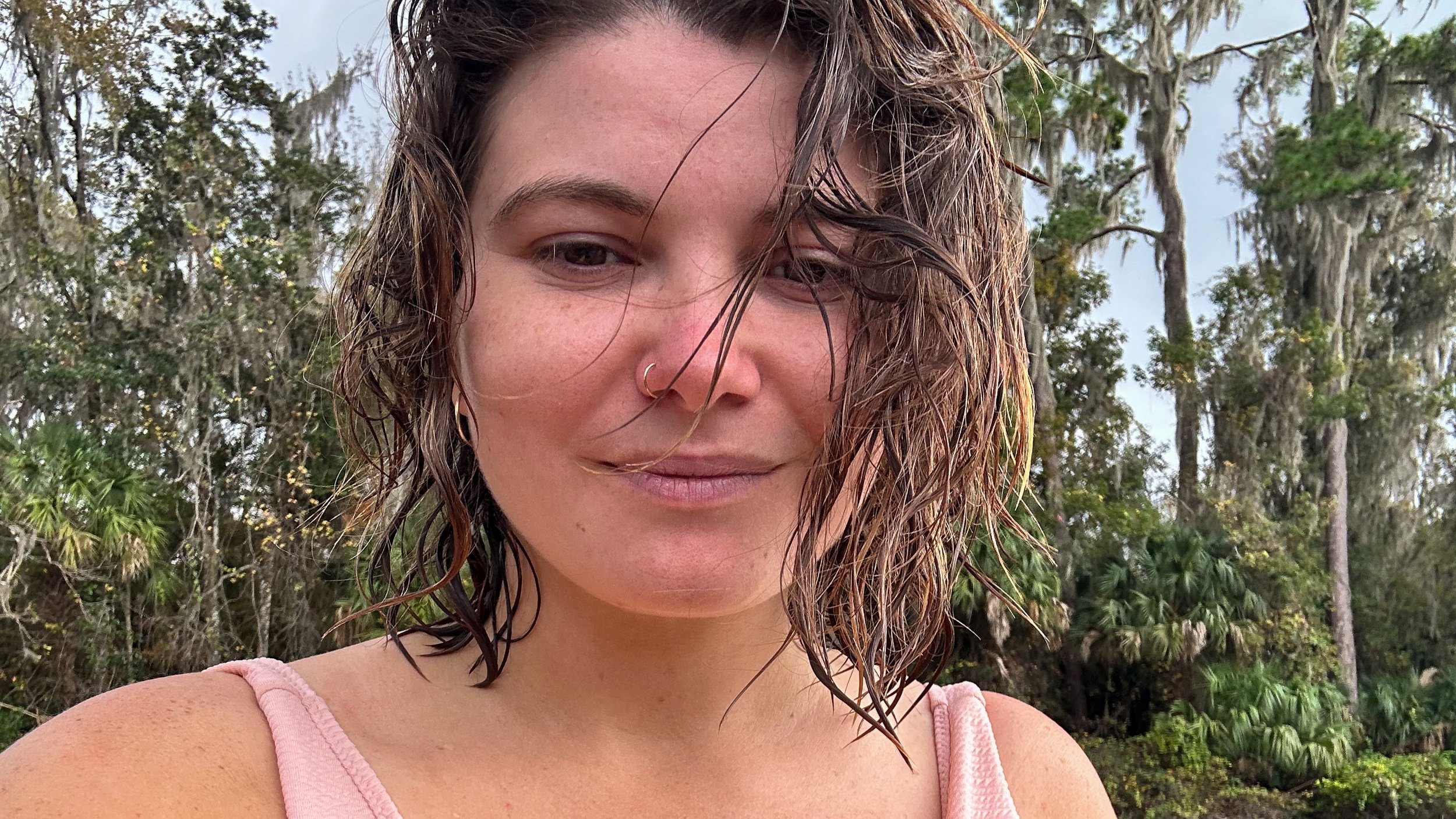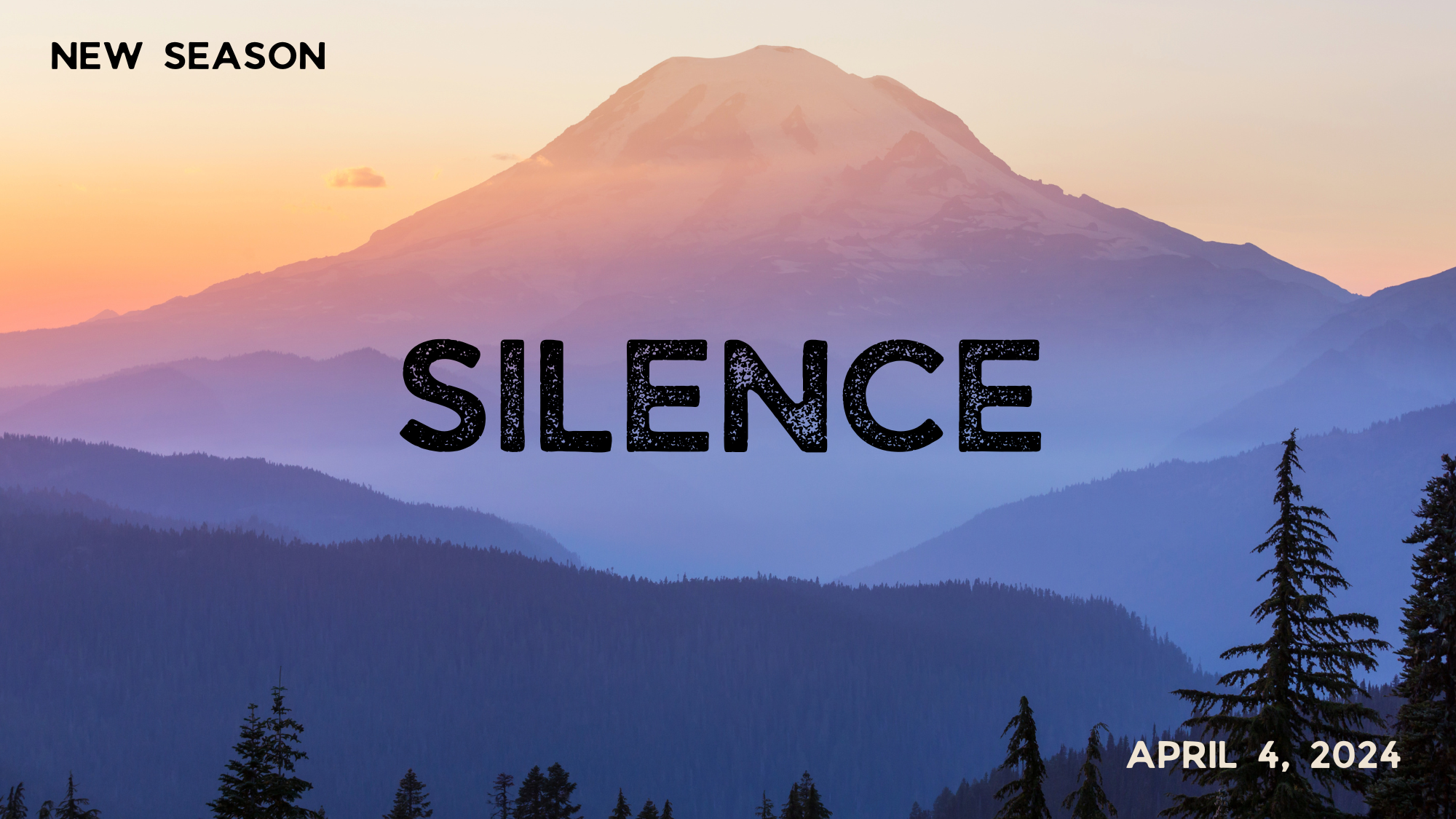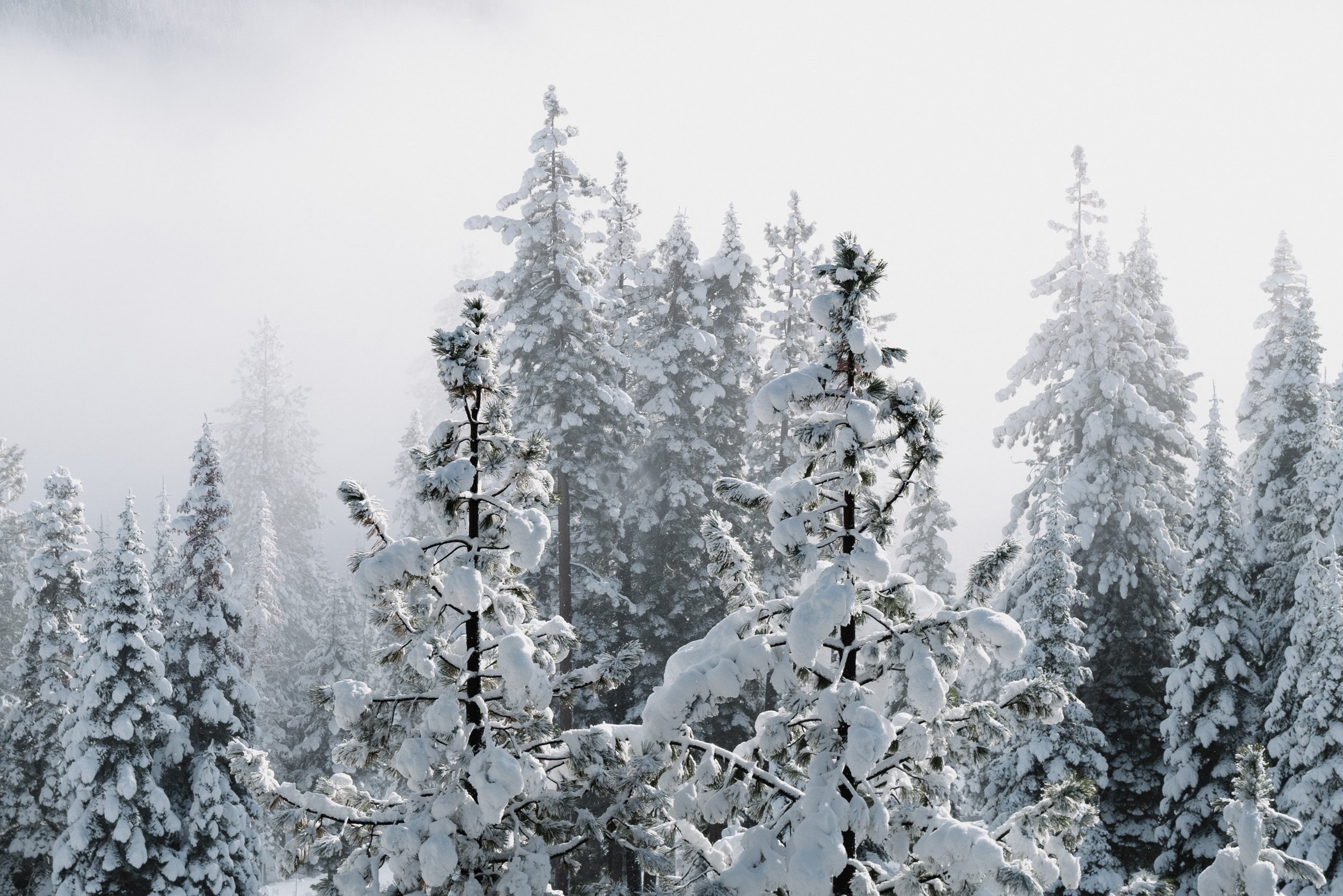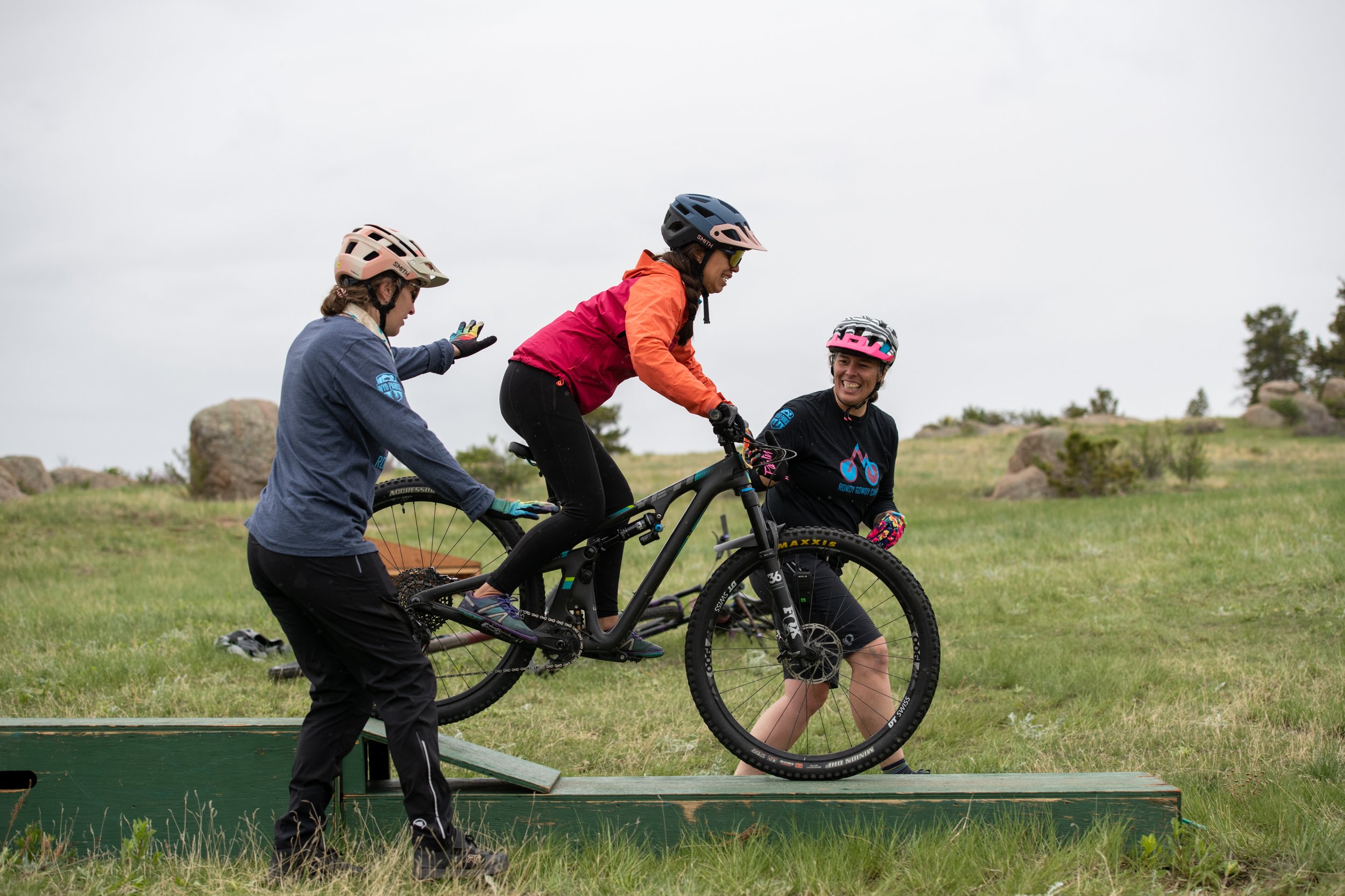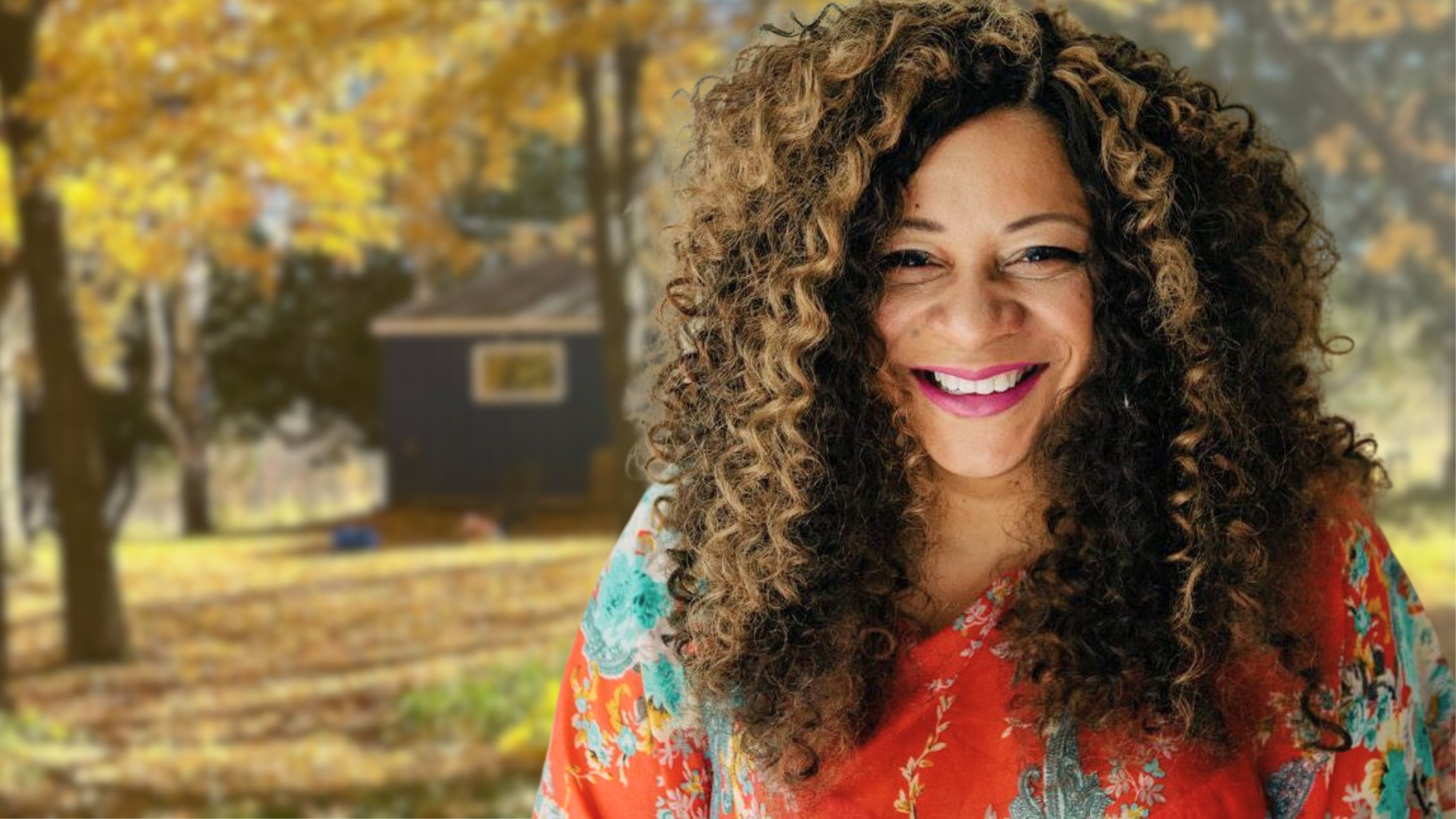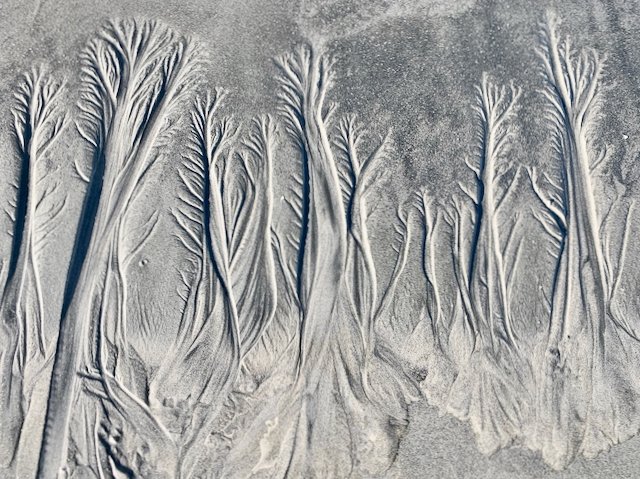The Fear of Loneliness
/How far would you go to make friends?
Julie Censullo and her friends navigate an un-planned portage in the Boundary Waters (Photo courtesy Julie Censullo)
Julie Censullo has a rule: When someone invites her to do something, she always says yes. It’s her way of staving off loneliness.
But when acquaintances suggested a four-day canoe trip in the Boundary Waters, she started second guessing herself. This was way outside her comfort zone. In the weeks leading up to the trip, she was so anxious she was hardly sleeping.
On this episode, Julie takes us to the Minnesota wilderness and explores what happens when you ignore your personal boundaries — just to make friends.
-
Welcome to Out There Podcast. Our stories are written for the ear, so for those able, we recommend listening while reading along. Transcripts may contain minor errors; please check the audio before quoting.
VOICEOVER: Hub and Spoke audio collective.
WILLOW: It’s September of 2024, and Julie Censullo is driving north from Minneapolis with some friends. They’re listening to “Good Luck Babe” by Chappell Roan on the radio. But Julie isn’t really listening. Instead, she’s sitting in the backseat, drenched in nervous sweat, and quietly googling “things that can go wrong in the Boundary Waters.”
The Boundary Waters is a huge expanse of wilderness in Northern Minnesota and Canada. It’s made up of more than a thousand different lakes. And when I say it’s “wilderness,” I mean WILDERNESS. There are no roads, limited cell service, and to get around, you mostly have to use a canoe or kayak.
Julie and her friends Jeff and Emily are on their way to a four-day camping trip in the wilderness, and Julie is feeling apprehensive, to say the least.
JULIE: What are you guys most excited about for the Boundary Waters.
EMILY: I am excited to just be out in the wilderness and kind of disconnect from the world and not have any technology and just look at beautiful nature things.
JULIE: Doesn’t that scare you?
EMILY: No.
JULIE: That’s what I’m most afraid of, is being disconnected. Jeff, what are you most excited about for the Boundary Waters?
JEFF: Um, yeah, it’s just exciting and fun and relaxing. All you need is like a tent and a meal and you’re good.
JULIE: Why is that appealing to you? Like, we have...
EMILY: Why are you coming with us, Julie? [laughter]
JULIE: Well, I…I mean, I’m excited but like…..we have food at home….
WILLOW: Julie, you certainly don’t sound excited. Why were you going on this trip?
JULIE: Yeah, great question. Basically, I was going because Jeff and Emily invited me. I had been feeling really lonely at the time, and I was craving some closer connections with people. And being invited on a four-day canoe camping trip felt like a shortcut to some deeper friendships. So I decided to say yes. But obviously once I realized what canoe camping in the wilderness actually entailed, I was doubting that decision.
WILLOW: I'm Willow Belden, and this is Out There, the podcast that explores big questions through intimate stories outdoors. Today's story is about what happens when you push yourself out of your comfort zone — like, REALLY FAR outside of your comfort zone — in order to have friends. On the one hand, it’s good to challenge yourself to try new things. But on the other hand, should you ignore your personal boundaries just to maybe, hopefully, feel less lonely? I'll let Julie take it from here.
JULIE: First, I want to set the record straight: I’m not NOT an outdoorsy person. I like to think of myself as outdoorsy adjacent. For example, I love to go on a walk in my Minneapolis neighborhood after work. I like to sit on a patio and drink a beer in the summer. I even started cross country skiing a few years ago to cope with the long Minnesota winters. But what I am not is an outdoor adventurer.
When Jeff and Emliy invited me to go to the Boundary Waters, all I could think about were things that could go wrong. Like, what if I got eaten by a bear? What if our canoe capsized? What if a tree fell on me? What if it rained the whole time? What if I got too cold at night? What if I got too hot at night? What if my tent got a hole in it? What if I fell and cracked my head open on a rock? What if I ate something weird and got food poisoning? What if I was so anxious that I couldn’t sleep and I spent four days in the wilderness on no sleep and I started to lose my mind?
But all of these fears were overshadowed by another, even bigger fear: the fear of what would happen if I didn’t say yes to this trip. The fear of loneliness. Loneliness is a feeling that I know quite well. I moved to Minnesota when I was 22 years old, and as most people who have ever moved to a new city or state will tell you, it’s very hard to make friends as an adult. For the first few years of my life here, I really didn’t have a lot of friends. I lived in a studio apartment, I worked three part time jobs to make money, and outside of work, I spent a lot of time by myself. Even after living in Minnesota for 10 years, there’s still this little part of me that feels like I’m operating from a friendship deficit. And so, I developed this rule: when someone invites me to do something, I always say yes.
I had been introduced to Jeff and Emily by mutual friends several years ago, but they still felt like “friends of friends” to me. This invitation to go camping with them, it felt like an opportunity to move from the friends-of-friends category to the actual friends category.
As for Jeff and Emily, I’m not sure they had the same goal in mind.
I am curious…um, why you invited me?
EMILY: Well, I think from like a purely selfish standpoint, Jeff and I had gone a couple times, just by ourselves, and every time we were like, “Oh, it would be so much fun to go with a friend,” but we could never make it work with….other friends. And you were the friend who said yes.
JULIE: Wait, did you ask other people before me?
JEFF: Well, nobody else lives in Minneapolis anymore.
JULIE: By virtue of the fact that many of their “other friends” had moved away from Minneapolis, and the fact that I had, well, not, I was suddenly their top choice of friend to invite to the Boundary Waters. And by virtue of my “never say no” rule, I had said yes.
And that’s how I found myself sitting in the backseat of Jeff and Emily’s car, scared out of my absolute mind.
SAFETY VIDEO VOICEOVER: Welcome to the Boundary Waters Canoe Area Wilderness. You’re heading into an area free from technology and modern conveniences.
JULIE: We picked up our canoe from a local outfitter. As part of the canoe rental process, we had to watch a safety video, which didn’t make me feel more safe.
SAFETY VIDEO VOICE: Cell service is rare in the wilderness, so mobile devices are unreliable. Be ready to be self-sufficient.
JULIE: Yikes.
JULIE: The Boundary Waters is made up of thousands of lakes that are connected by lightly maintained foot paths. To travel between lakes, you have to “portage,” which means carrying your canoe and all of your supplies — your tent, your clothes, your food, your gear — along a one of these trails.
Because this was my first time, Emily and Jeff had tried to plan a route with minimal portaging to start. We entered the Boundary Waters via a lovely little stream, so that I could get used to paddling on the peaceful water the Boundary Waters are known for. Well, that was the plan, anyway.
EMILY: Yeah, that first day sucked, actually.
JULIE: This was mid-September, and water levels were very low. So the lovely little stream was mostly just a very shallow mud puddle punctuated by sand bars and logs. We spent almost an hour paddling a few yards, then unloading our canoe, ferrying our supplies around an obstacle, carrying the canoe over, putting everything back in the canoe, and then paddling for another hundred yards or so, before doing it all again.
JEFF: And I remember being really nervous that this was not fun for anyone.
JULIE: Yeah, it was not fun. For anyone. Three hours and two difficult portages into the trip, we finally pushed our canoe onto Fourtown Lake. We began to paddle. It was the first actual paddling of the day, and my arms were already shaky from exhaustion. I kept my head down, paddling as hard as I could, focusing only on getting to our campsite, where I knew we could finally rest.
Suddenly, I heard Jeff say from the back of the canoe, “Let’s take a break.”
We stopped in the middle of the lake, and I finally looked up. For the first time that day, I let myself take in the wilderness around me. We were the only canoe on Fourtown Lake. The water was so calm and clear. The leaves on the trees were just starting to turn golden for fall. Emily tapped me on the shoulder and handed me a peanut butter and jelly bagel. We made a little small talk, but mostly we just ate in silence.
After we finished our bagels, we paddled until we found a campsite. Jeff and Emily immediately got to work setting up camp. It was clear that they had done this before. Jeff filtered water from the lake for us to drink, and Emily unpacked our cooking supplies. I wandered around, trying to be helpful. Emily suggested I look for firewood.
JULIE: Can we use something like this?
EMILY: Um...part of it, yeah. I think the other parts will probably just kind of…
JULIE: ..fizzle out?
EMILY: Yeah, they’re not going to like burn.
JULIE: I don’t think I was contributing much, but I appreciated that Emily was humoring me.
We ate dinner and chatted while the sun set over the lake. As I watched the sky turn from orange to pink to lavender, I tried to tell myself that this — this moment here — was what I had been looking for when I said yes to this trip. I was experiencing something profoundly beautiful in the woods with two friends.
But the sun setting meant it would be dark soon. And darkness meant that it was only a matter of time before bears and coyotes and wolves would come to eat me.
Before we went to bed, I re-positioned my tent so that it faced Jeff and Emily’s. Even though I couldn’t see them in the darkness, I felt better knowing they were there. I zipped up my tent and awkwardly shimmied into my sleeping bag. I gripped my flashlight, anticipating a restless, fearful night.
When I opened my eyes to the sun the next morning, I was surprised I’d managed to sleep even a few hours. Jeff and Emily promised me we could take it easy that next day. We paddled around Fourtown Lake without any real destination. We ate sandwiches on a rock in the middle of the lake, and watched some loons fish for their own lunch. We laid in the sun and read our books and went swimming when the sun got too hot.
On the third day, Jeff wanted to paddle over to Horse Lake, a large lake that was popular for fishing and camping. I was nervous about moving campsites, but I was starting to feel a little bit more adventurous — which was a new feeling for me. I even offered to sit in the back of the canoe with the map and help steer us.
JEFF: It’s like that early morning, the lakes are really still. It’s like easy canoeing and things felt really good.
JULIE: I navigated us to our first portage of the morning, a short one, not too far from our initial camp site. We crossed the portage swiftly and easily. Unlike the first day, I actually felt like I was contributing to the work of moving through the wilderness. I could carry things more easily, I knew what to look out for, how to unload and reload the canoe with maximum efficiency. Maybe I hadn’t been Jeff and Emily’s first choice of friend to invite on this trip, but I felt like I was rising to the occasion.
I steered us east. The next portage looked to be about a mile away. We paddled along, settling into a rhythm.
All of a sudden, I noticed something up ahead. The lake began to narrow as we moved towards a large pile of boulders that stretched from one side of the lake to another. I steered us forward, assuming this must just be the portage, earlier than I expected.
As we got closer, I looked around for a place to bring the canoe to shore.
EMILY: Well, usually when you portage somewhere, it’s like a designated trail. You might have to go over a little bit of rocks, but it’s doable. This was just like a river bank that was rocks. And there were no trails on either side of the water.
JULIE: All I saw on either side of the water was thick brush and dense woods.
EMILY: At that point, when we saw that, you just wonder if you’re doing the right thing, and if you somehow took a wrong turn or if this is actually the direction you’re supposed to go, because it seems so unpassable.
JULIE: I began to frantically study the map. Had I made a wrong turn somewhere? Were we lost? Had I failed as the navigator? Had I let the group down? And then I remembered the low water levels we had encountered on the first day of the trip. This was the right direction, but because the water was so low, the large boulders that we normally would have paddled over were exposed. There was no portage trail because this wasn’t supposed to be a portage.
EMILY: And we looked at all the different options. We were like, OK can we go around? Can we go like over? Nope. We just have to go through it.
JULIE: The only way through this rock pile was through it. I put my hand out and touched the very slick, algae-coated surface of one of the boulders. We needed to carry five large bags over all these slimy, jagged rocks without slipping.
EMILY: And also, remember: you have to carry a canoe.
JULIE: One wrong step, one moment of lost balance, and you could easily slip.
EMILY: I think my biggest concern was someone getting actually hurt.
JULIE: Specifically, Emily was scared of Jeff getting hurt. Jeff was also scared of Jeff getting hurt.
JEFF: I famously always get hurt on trips. And so I was a little bit worried that I was gonna just like totally eat it and then like mess up my ankle or something, and then you guys were going to have to just do everything to get me back.
JULIE: If anything happened to Jeff — or to any of us — we were a full day away from civilization. Crossing these rocks was a risk. And I mean an ACTUAL risk, unlike all of the other things I had been worried about for the last 48 hours.
But I knew that Jeff and Emily really wanted to make it to Horse Lake. I knew that Jeff had specifically purchased an entry permit that allowed us to camp on Horse Lake. I knew this was important to my friends. So I agreed we should try to move forward.
EMILY: I think we were all kind of on board of like, “OK, lets just go really slow, we’re not going to rush it, and if someone really feels not safe, we’ll regroup.”
JULIE: Very tentatively, we unloaded our canoe and started to cross the boulders. We moved slowly, carefully placing our feet on the rocks. Whenever one of us successfully found a spot with enough grip to step on, we would call out, directing each other to the spot. Every time I started to slip, my body would tense. My anxious brain would scream at me: ‘Is it really worth it to make friends if you end up seriously injured or dead?’ But I couldn’t think about my fear now. My fear was a distraction. I just had to focus on putting one foot in front of the other.
It took us three agonizingly slow trips, but we finally reached the other side, with all of our gear and bones intact. As we lowered our canoe back into the water, my fear evaporated. I was left with this giddy, almost loopy sense of accomplishment. Jeff, Emily and I all cheered. I couldn’t believe we had pulled that off.
JEFF: That was mentally challenging, physically challenging, and risky. But we needed to do that. And we’re here.
JULIE: In the weeks before our trip, I had spent a lot of time thinking about the harm that could happen to me — to my own body. But during that unplanned portage, I had stopped thinking about my own safety. We were a unit, the three of us. And all that mattered was that our unit was safe.
We climbed in the canoe, and I set us back on course.
When we finally arrived at our campsite on Horse Lake, we set up our tents. Once again, I made sure that my tent faced Jeff and Emily’s. Then we walked down to the shore to eat our last dinner in the wilderness.
ALL THREE: Cheers to the Boundary Waters! Adventure is out there.
JULIE: And as the sun set, we sat in comfortable silence, staring out over the lake.
The next morning, we paddled and portaged, and paddled and portaged, and paddled and portaged again, out of the Boundary Waters.
In the car ride back to Minneapolis, I felt incredibly proud of myself. I also felt absolutely drained. For the first time in weeks, I no longer had to worry about all of the things that could go wrong on this trip. It was over. I was safe.
But now I was left wondering: was this trip worth it? Sure, some parts of it had been fun. But it was also physically and mentally exhausting. I did feel closer to Jeff and Emily, which was the whole point of going. But couldn’t we have deepened our friendship by doing something less challenging, less risky? What if we had just spent a weekend doing fun things in the city, or lounging at the beach? Did I really have to do something so far out of my comfort zone just to make friends?
LAUREN BRENT: When you're out camping somewhere remote, if you're doing that with others, then you're basically using what I would say would be the evolved function of social relationships.
JULIE: This is Dr. Lauren Brent. She’s a professor at the University of Exeter, and she studies animal behavior.
LAUREN: In particular, I’m interested in friendship, but I do that from an evolutionary perspective. I want to know why friendship evolved.
JULIE: I reached out to Lauren to ask if it was worth it to push yourself outside of your comfort zone to deepen a friendship. Is there any science behind this idea?
LAUREN: I think it might be worth it to really push yourself out there and take a couple of risks in order to establish those relationships. Because as we know, you need them to survive.
JULIE: You need friends to survive. And Lauen doesn’t just mean that you need them to survive in the wilderness. We need friends to survive, period.
LAUREN: So people that have more friends or stronger relationships with the friends they have, live longer, exhibit better health outcomes.
JULIE: Lauren’s research has shown that animals that have stronger social networks are better able to solve problems. They can look out for each other if a predator is nearby or help each other find food, which is good for the evolutionary health of the species. The same goes for people, too.
LAUREN: And that's the point of having each other in our lives. Which sometimes people think sounds quite transactional and not very nice, but I think it's really beautiful, right? That we need each other to survive, and so we can forge these relationships and then rely on each other to get through things.
JULIE: In a way, Jeff and Emily inviting me on this trip, had been a bit transactional. They were just looking for another set of hands for their canoe camping adventure. But being in the wilderness together had given us an opportunity to rely on one another. To work through challenges. Which did bring us closer together. And I don’t think that would have happened by just hanging out in the city or at the beach.
Talking to Lauren also made me rethink how I felt about so-called “friends of friends,” too. As an adult, I have been so fixated on forming close friendships with people. But Lauren pointed out that it’s also important to have those more casual friendships in our lives.
LAUREN: There is a really long standing idea in network science called the strength of weak ties, which is basically about our acquaintances, our friends of friends. Those are individuals who might introduce us to our future spouse or tell us about a job opportunity that pans out, right? You’re getting information from these people, you’re getting social opportunities from these people.
JULIE: The more weak ties you have, the more resilient you are. The more able you are to handle all the little challenges that life throws at you. And that ultimately leads to things like lower blood pressure, better mental health, and even living longer. Besides, you never know when a more casual acquaintance will invite you to go on a whirlwind camping adventure.
Lauren told me that we can’t exactly say that surviving in the wilderness is a surefire way to deepen a friendship. But she does think that there is something special about outdoors when it comes to connecting with others.
LAUREN BRENT: Being outdoors — in the real outdoors — gets us closer to those life and death situations that we would've faced 50,000 years ago that we don't face so often now, sat in our office buildings or whatever it is. So maybe those are the moments where the evolved function of friendship can really shine.
JULIE: Hello.
EMILY: Hi! Come on in.
JULIE: I brought this fancy fermented beverage.
EMILY: Oooh!
JULIE: These days, I hang out with Jeff and Emily much more than I did before. It’s not like I see them all the time, but they are people I can count on. I know they are usually up for an impromptu weeknight dinner if I’m feeling lonely, or that they’ll pick me up from the airport on short notice. And I know I can reach out to them in an emergency. And I know they feel the same about me.
EMILY: I think you’re going to be closer with someone if you have a shared experience together, especially if it is something that’s a little bit challenging, and it’s maybe new for both of you or one of you, you’re definitely going to be closer after that.
JEFF: Like I feel like friendship, it’s built on experiences, like shared experiences. You know, when you’re traveling there are a lot of emotional highs and hopefully not as many emotional lows, but there can be, too. And I think all of those are how you get closer to people.
JULIE: Before this trip, I thought of Jeff and Emily as friends of friends.. But now, I just think of them as friends.
And when Jeff texted me a few weeks ago to ask if I wanted to go camping in the Boundary Waters again this year. I didn’t hesitate before saying yes.
WILLOW: That was Julie Censullo. She’s a freelance audio producer based in Minneapolis. You can find more of her work at juliecensullo.com or follow her on instagram @juliecensullo. She also recently launched a podcast of her own. If you want to check it out, it’s called Choosing, and it’s about the different ways people choose to become parents.
If you’re a long-time listener of Out There, you’ve probably noticed that it’s been a while since I’ve released any new episodes.
That’s because I started a new full-time job this spring.
It’s been a brutal few years in the podcasting industry, and I needed work that could support me. So I took a job as Communications Director for the Wyoming Outdoor Council, which is the leading environmental advocacy group in the state.
As for Out There, I plan to keep producing occasional episodes, as time and funding permit. My day job is keeping me pretty busy, but it’s also introducing me to fascinating people with fascinating stories, and I’m sure it will inspire future episodes, even if those episodes will, by necessity, be less frequent.
If you’ve been supporting Out There on Patreon, THANK YOU. I’ve paused the billing on your subscription for the moment. It doesn’t feel right to take your money each month, given my sporadic production schedule.
If you made a year-end gift to Out There last year, a big thank-you to you, as well. Your donation helped fund this episode and will make it possible for me to produce more stories down the road.
Thank you so much for believing in Out There. Whether you’ve left a review, or made a financial contribution, or just been a loyal listener over the years, you are a part of the Out There family, and I’m grateful for your support.
Today’s story was written, produced and sound designed by Julie Censullo. Story editing by me, Willow Belden. And special thanks to Lydia Denworth for providing additional background information on the science of friendship.
Out There is produced by me, Willow Belden. Our audience growth director is Sheeba Joseph. Our ambassadors are Tiffany Duong, Ashley White, and Stacia Bennet. And our theme music was written by Jared Arnold.
Special thanks to all our listeners who have supported Out There with financial contributions, including Jeff Lockwood, Bryan Stokes, John Barth, Rob Landicho, Carrie Bennett, Mike Boutin and Pat Gruenberg, James Brunt, Chris Larson and Julia Dale Larson, Sam Shopinski and Lisa King, Matt Frassica, Joachim Mugdan, Dave Leon, Holden Lewis, Mike Bachman, Mary Seim, Paul Barach, Gary Savage, Eric Biederman, Todd Oyen, Tara Joslin, and Deb and Vince Garcia.
I’ll see you next time. And in the meantime, have a beautiful day, be bold, go outside, and find your dreams.
Credits
Story and sound design by Julie Censullo
Story editing by Willow Belden
Special thanks to Lydia Denworth for providing background information on the science of friendship
Music includes works from Blue Dot Sessions
Links
Subscribe to our email newsletter
Check out Julie’s new podcast Choosing, which explores the different ways people choose to become parents

